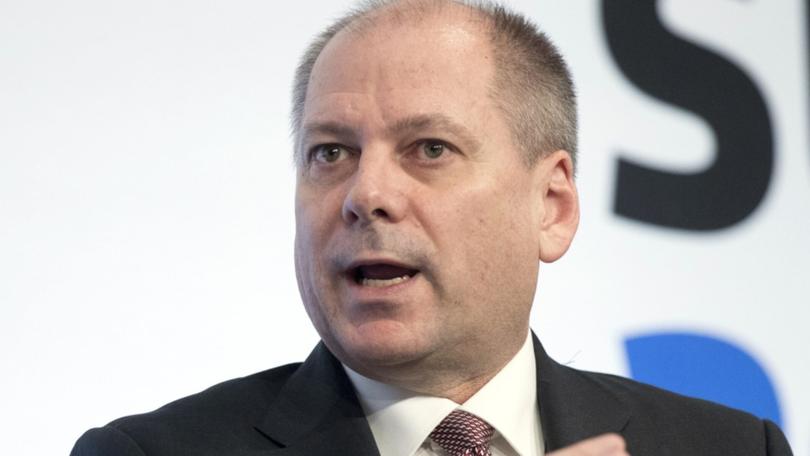Westpac positive on national economy but keeps some powder dry as global risks loom
Westpac chief executive Peter King says the bank is keeping some powder dry amid global uncertainty but believes the nation’s economy remains resilient.

Westpac chief executive Peter King says the bank is keeping some powder dry amid global uncertainty but believes the nation’s economy remains resilient.
Mr King said consumer spending had softened but overall credit and debit card activity had remained steady as demand in the economy was bolstered by investment in the transition to renewable energy and the healthcare sector.
He told the Macquarie Australia Conference in Sydney on Wednesday that there had been slight reductions in consumer spending and employment figures but said the economy was holding up well against a backdrop of higher interest rates and sticky inflation.
Sign up to The Nightly's newsletters.
Get the first look at the digital newspaper, curated daily stories and breaking headlines delivered to your inbox.
By continuing you agree to our Terms and Privacy Policy.“I think the edge is coming off, or the top is coming off, some of the key metrics, but overall resilient,” he said.
Mr King told the conference that shortages of skilled workers remained a bottleneck to growth, particularly a deficit of tradies in the construction sector.
He said the economic outlook was positive and Westpac had 18,000 hardship arrangements out of a loan base of 1.6 million customers.
“Most of those hardship arrangements are actually for three-month periods,” he said. “So people need three months of breathing space.”
Mr King said divorce, job loss and illness remained the main drivers of hardship.
He also cast doubt over fears of a looming mortgage cliff where borrowers are unable to service their repayments, and said people had chosen to prioritise keeping their homes amid rising cost of living pressures.
He said the issue affecting Australia’s red-hot housing market was property was too expensive as opposed to lenders being too risk averse, though he conceded the due diligence requirements for loan applications may be too stringent.
“I don’t think the housing market suffers from a lack of credit. I think it suffers from housing prices being very expensive,” he said, adding that those who could buy a house was a societal issue.
He said 77 per cent of the bank’s borrowers were ahead of their repayments while mortgage offset balances had grown by a couple of billion dollars in the six months to the end of March.
“We’ve broadly lent to people that, at this point in the cycle, have managed through well and probably had excess income beyond the three per cent (loan repayment buffer),” Mr King said.
“So that’s why the books are in pretty good shape. But like everything, there’s a tail. It’s a small tail in the hardship and we’re conscious of that as well.”
Mr King said Australia had a fairly stable regulatory system and the bank had decided to return capital to investors through a share buyback and special dividend.
But he said the bank had chosen to retain some flexibility due to potential risks.
“The world is a bit of an uncertain place at the moment,” he said.
“So we’ll probably keep a little bit of powder dry in terms of the way you’re running the company and you’re funding capital.”

